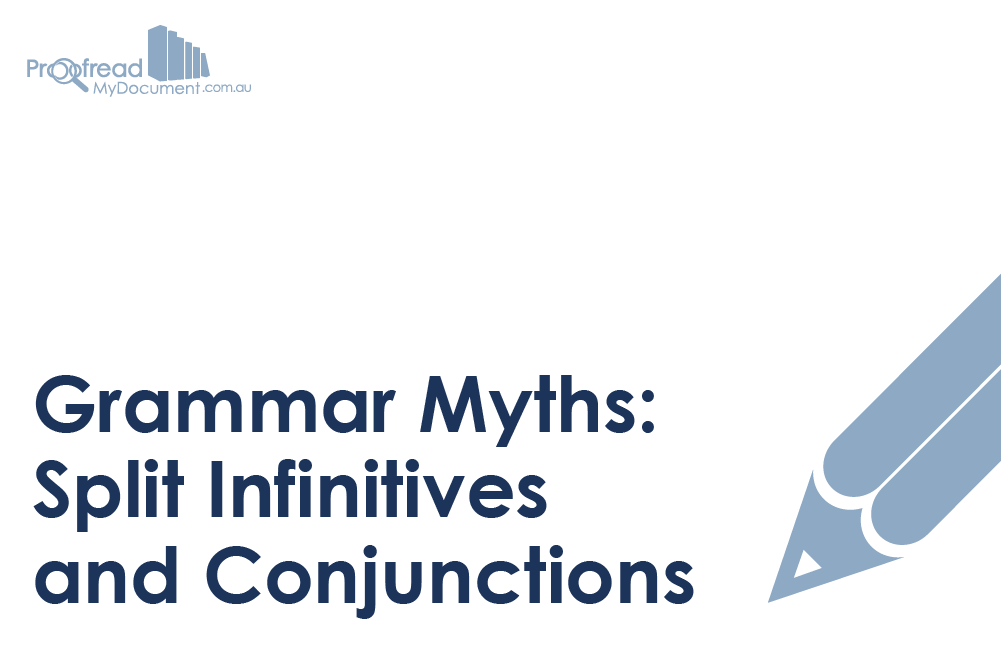The rules underpinning English are not always black and white. And while we appreciate proper grammar, we’re also aware that a lot of the ‘rules’ surrounding grammar can be misleading, especially when it comes to infinitives and conjunctions.
So in this post, we focus on two commonly disputed issues in this regard, hopefully helping you to make informed decisions in your own writing!
Myth #1: Never Split an Infinitive
The infinitive is a verb form where ‘to’ is combined with the base verb, such as ‘to swim’ or ‘to laugh’. Split infinitives occur when you place an adverb (‘slowly’, ‘carefully’, etc.) between ‘to’ and the verb:
I used to quietly eat my lunch in the corner.
She had to really focus on the work.
Some people argue that this is grammatically incorrect and should never be done in written English. According to this logic, the examples above should be written as:
I used to eat my lunch quietly in the corner.
She really had to focus on the work.
The first example here makes perfect sense when the adverb is moved. But in the second example, moving the adverb has changed the meaning of the sentence:
She had to really focus on the work.
Find this useful?
Subscribe to our newsletter and get writing tips from our editors straight to your inbox.
Here, ‘really’ is clearly modifying ‘focus’, suggesting intense concentration:
She really had to focus on the work.
But here, it seems like really is modifying ‘had’, emphasising the urgency of focusing (rather than the intensity of the focus). So in this case, splitting the infinitive helps ensure clarity.
Myth #2: Never Start a Sentence with a Conjunction
Some believe that a sentence should never begin with a coordinating conjunction (e.g. ‘and’, ‘or’ or ‘but’). This idea may have started with teachers noticing that young children often overuse the word ‘and’:
Last year I went to the beach. And I ate an ice cream. And we went surfing. And I saw a jellyfish. And…
(Photo: dinai8130)
Beginning every sentence with ‘and’ clearly isn’t appropriate. But using a conjunction at the start of a sentence now and then is entirely fine, especially when it shows how a sentence relates to the previous one (like with the ‘but’ at the start of this sentence).
In some forms of writing, it can also be useful for presenting something as an afterthought:
I need to buy eggs. And some bread. But we don’t need any milk.
And ultimately, most writers and grammarians agree that it’s fine to start a sentence with a conjunction. So we advise sticking with the majority!
